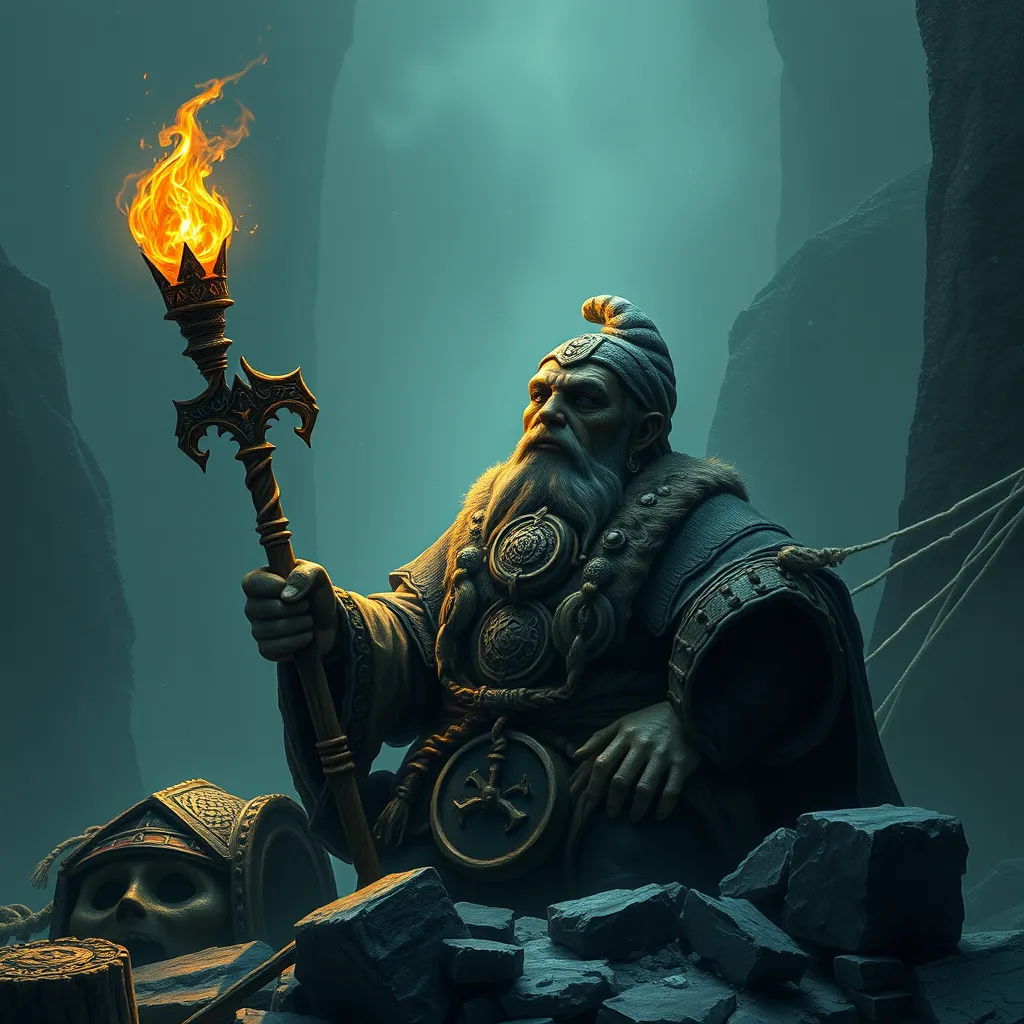The Dwarven Wisdom: Examining the Knowledge and Philosophy of Dwarf Culture
I. Introduction to Dwarven Culture
Dwarven culture is rich with mythology and steeped in historical context, making it one of the most fascinating aspects of fantasy literature and lore. Traditionally depicted as stout, hardy beings with a love for mining, crafting, and ale, Dwarves possess a complex societal structure that values wisdom and knowledge above many other traits.
In Dwarven society, wisdom is not merely the accumulation of knowledge but a way of life that influences their interactions with the world and each other. The significance of wisdom and knowledge is deeply embedded in their traditions, governing their ethical beliefs, craftsmanship, and community dynamics.
II. The Role of Oral Tradition in Dwarven Wisdom
Oral tradition plays a vital role in the transmission of Dwarven wisdom. Storytelling and folklore are not just entertainment; they are the vehicles through which history, morals, and knowledge are passed down through generations.
- The importance of storytelling and folklore: Dwarven tales often feature legendary heroes, epic battles, and moral lessons that resonate with the values of the community. These stories serve to educate the younger generations about their ancestry and the lessons learned from their forebears.
- Transmission of knowledge through generations: Elders are revered as keepers of knowledge. Through oral recitation, they share not only stories but also practical wisdom regarding craftsmanship, survival, and ethics.
III. Dwarven Philosophy: Values and Beliefs
Dwarven philosophy is rooted in core principles that define their ethics and morality. These principles emphasize hard work, loyalty, and a deep respect for the earth.
- Core principles of Dwarven ethics and morality: Dwarves uphold values such as honor, courage, and a commitment to their clan. They believe in facing challenges head-on and maintaining integrity in all dealings.
- The balance between tradition and innovation: While Dwarves are known for their adherence to tradition, they also embrace innovation in craftsmanship and technology. This balance allows them to thrive while remaining true to their roots.
IV. Craftsmanship as a Form of Wisdom
For Dwarves, craftsmanship transcends mere utility; it is a form of wisdom that reflects their understanding of the materials and the world around them.
- The Dwarven approach to craftsmanship and artistry: Dwarven artisans are meticulous and skilled, often spending decades perfecting their craft. Each weapon, piece of jewelry, or architectural marvel is a testament to their dedication and ingenuity.
- Symbolism and meaning behind Dwarven creations: Dwarven craftsmanship often carries symbolic meaning, representing family lineage, clan history, or significant events. These creations are not just functional; they are imbued with stories and emotions.
V. The Significance of Community and Kinship
Community and kinship are foundational to Dwarven society. The bonds formed within families and clans greatly influence their approach to knowledge-sharing and collective decision-making.
- The role of family and clan in knowledge-sharing: Knowledge is often shared within families, with skills and wisdom passed down from parent to child. Clan gatherings provide a platform for sharing stories, celebrating achievements, and addressing communal challenges.
- Collective wisdom and decision-making processes: Dwarven councils often convene to discuss important matters, drawing on the collective knowledge of their members. This democratic approach ensures that every voice is heard and respected.
VI. Dwarven Approaches to Learning and Education
Education in Dwarven society takes many forms, combining both formal and informal methods to impart wisdom and skills effectively.
- Formal and informal education within Dwarven society: While apprenticeships and formal training in specific crafts are common, informal education through storytelling and communal activities plays a crucial role in shaping Dwarven youth.
- Mentorship and apprenticeship as pathways to wisdom: Young Dwarves often begin their journeys as apprentices to experienced artisans, learning the nuances of their craft while absorbing the philosophy and ethics of Dwarven life.
VII. The Influence of Dwarven Wisdom on Other Cultures
Dwarven wisdom has not only shaped their own culture but has also significantly influenced interactions with other races, such as Elves and Humans.
- Interactions with Elves, Humans, and other races: Through trade, conflict, and alliances, Dwarven philosophies have been exchanged with other cultures, often leading to mutual respect and learning.
- The exchange of knowledge and philosophical ideas: Dwarven craftsmanship, particularly in metallurgy and stonework, has inspired other cultures, while Dwarves have learned about nature and magic from Elves, creating a rich tapestry of shared knowledge.
VIII. Conclusion: The Legacy of Dwarven Wisdom
The legacy of Dwarven wisdom endures in modern fantasy literature and culture, as Dwarves continue to be depicted as wise, resilient beings with a profound understanding of their world.
Dwarven philosophy not only enriches the narratives in which they appear but also offers contemporary society valuable insights into the importance of community, tradition, and craftsmanship. As we reflect on their wisdom, we find enduring lessons that resonate with our own lives, urging us to cherish our history, honor our communities, and embrace the journey of knowledge.




